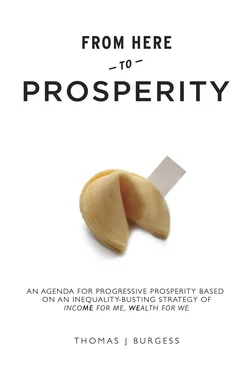There is a lot more than transport that is crumbling and not keeping up with the demands of today and the needs of tomorrow. Schools, university, public leisure and recreational facilities are all suffering from reduced budgets due to short-sighted views and a lack of radical thought as to how all this could be funded and effectively pay for itself from the increased national and local wealth that would result.
Throughout history, transportation has been the facilitator of trade and the engine of the industrial world, yet this perceived wisdom is being ignored to the detriment of economic growth. If we want economic growth we need to invest in infrastructure especially transport and it has to be available to all. Though it is not just inadequate infrastructure that has been slowing economic growth, it has been the policies of government that have had a significant negative effect. So unless there is a bold strategic and radical vision on economic policy and infrastructure development, we are going to be confined to the slow lane, which benefits no one. And as has been demonstrated, even with good economic growth the benefits can go to the few, not the many.
1.3. Government isn’t working (for us)
Our democracy has been damaged; the widening gap in economic inequality has disenfranchised many who are not able to participate in the opportunities that their country should be able to offer. The rise and rise of the super-rich has turned our democracies into plutocracies: societies ruled and dominated by the small minority of the wealthiest citizens. At the same time, money from big business is poured into lobbying and electoral campaigns. We have strayed a long way from government of the people, by the people, for the people.
Our liberal democracy has been undermined by big money and political polarisation. Governments are becoming dysfunctional. In the USA, particularly, the government has come to a halt on several occasions thanks to intransigence over budgets and spending. In 2010, in the UK, the lack of an outright majority for one party led to the first coalition government since the Second World War. It failed to act with a sense of urgency or clear direction and was antithetical to stimulus initiatives and focussed instead on austerity measures that mainly hit the poor. An election in 2015 put the Conservatives into power by a narrow majority promising more – much more – of the same. But in recent decades both the US and UK governments have lacked any clear agenda for sustainable and socially just structural change. Their purpose should be to sow the seeds of prosperity, to cultivate them and harvest the benefits for all. Yet their policies are making matters worse for the majority, and the problem is partly down to tax.
Tax codes have become increasingly complex, as have the ways of avoiding taxes. Governments still raise most of the revenue from taxes on incomes. In the UK, over 43% of government revenue comes from taxes on incomes including National Insurance. As its name suggests, National Insurance was introduced in the UK in 1911 as an insurance scheme to which workers and employers contributed to cover for illness and unemployment. It was later expanded to cover retirement pensions and other benefits. Successive governments have undermined the concept and it is now treated openly as a tax. In the USA, the cost of health insurance, while not a tax, adds significantly to employers’ costs. Domestic property taxes (Council Tax) in the UK have to be paid by both homeowners and renters so are just another tax that falls harder on the less well off. The UK also has a sales tax, Value Added Tax, paid by the end-user, which has a disproportionate impact on the poor. The concept of taxes on wealth and higher tax on higher incomes seems to be side-lined. 80% of British Income Tax payers earn below £32,000 and yet still have to pay Income Tax which actually adds so little to the government revenue. It is not worth causing so much hardship for such a small return. Yet there are no effective taxes on the wealth accumulated by the few. Capital Gains Tax and Inheritance Tax account for just 1% of UK tax revenue. If Stamp Duty (a tax on property transactions) is included as well, then it rises to just 3%. Austerity programmes have hit hard but, by definition, the wealthy are protected. Huge numbers of low-paid workers are still below the poverty line and receiving state benefits. In effect, taxpayers are subsidising wealthy shareholders and low wages. So very clearly the government is not working for us, the majority.
In his book Public Revenue without Taxation, my father, Dr Ronald Burgess, showed that there is a more equitable and efficient way of funding government. His argument rests on a widely accepted definition of tax: ‘a compulsory contribution to a public authority irrespective of the exact amount of service rendered to the taxpayer in return’. It follows that, if what the taxpayer is required to pay is in direct relation to services rendered, then it is not a tax: it is a payment for services rendered, just like any other transaction and indeed a much more palatable process than the current system.
So, if all ‘tax’ could be in direct relation to the services and benefits received from the government, then the payments to the government from the people would not be a tax. Instead they would be getting what they paid for. This could be achieved by using the value of land, the natural resource that is in limited supply, as the tax base. The price of property already includes the value of these public amenities, but it is necessary to distinguish the value the land from the value of any building or other improvement on the site. The former is a publicly created value and the latter is privately created. To tax the building and improvements is to penalise private investment, but to ‘tax’ the value of the land is to collect for the public purse what has been created at public expense.
This is equitable, but there is a further benefit: as improvements to public infrastructure and local services are automatically translated by the market into higher land values, this will trigger higher contributions to the public purse from the land owners who benefit in proportion to the benefit received, as valued by the market. This is a virtuous circle: the more services provided, the higher the land values and the greater public revenue. This concept will be examined further to see how such system could be implemented and its significant impact on rampant inequality.
This principle could and should be extended to more areas of local and national revenue collection. While it has been shown that sufficient public revenue could be raised without taxation, tax could still be a useful economic management tool, in which case, with current levels of inequality, it may still be necessary to keep some taxes for the time being. But contrast this model with what we do now.
Too many are in what is described as the poverty trap. It’s bad for them and bad for the rest of us. Because employers are subsidised to pay low wages through the system of in-work benefits, there’s less money moving through the economy and consequently less flowing into the Treasury. Broadly, it is estimated that it is not worth coming off welfare benefits in UK unless the job pays more than £15,000 per year. The policy of successive governments has been to cut welfare budgets to save money; austerity measures have meant more people need more welfare; there is less scope to meet this need. Initiatives to increase growth and provide more work that would have alleviated the pain for those most hard-pressed, have been eschewed. But if we took bold moves to increase income for the lower earners it would also create more opportunity for those currently in poverty to break out of it, and it would boost consumer demand. Increasing both the number and the value of jobs would reduce the welfare budget so that government could focus funds on growth and wealth creation. Win-win instead of lose-lose-lose.
Читать дальше












